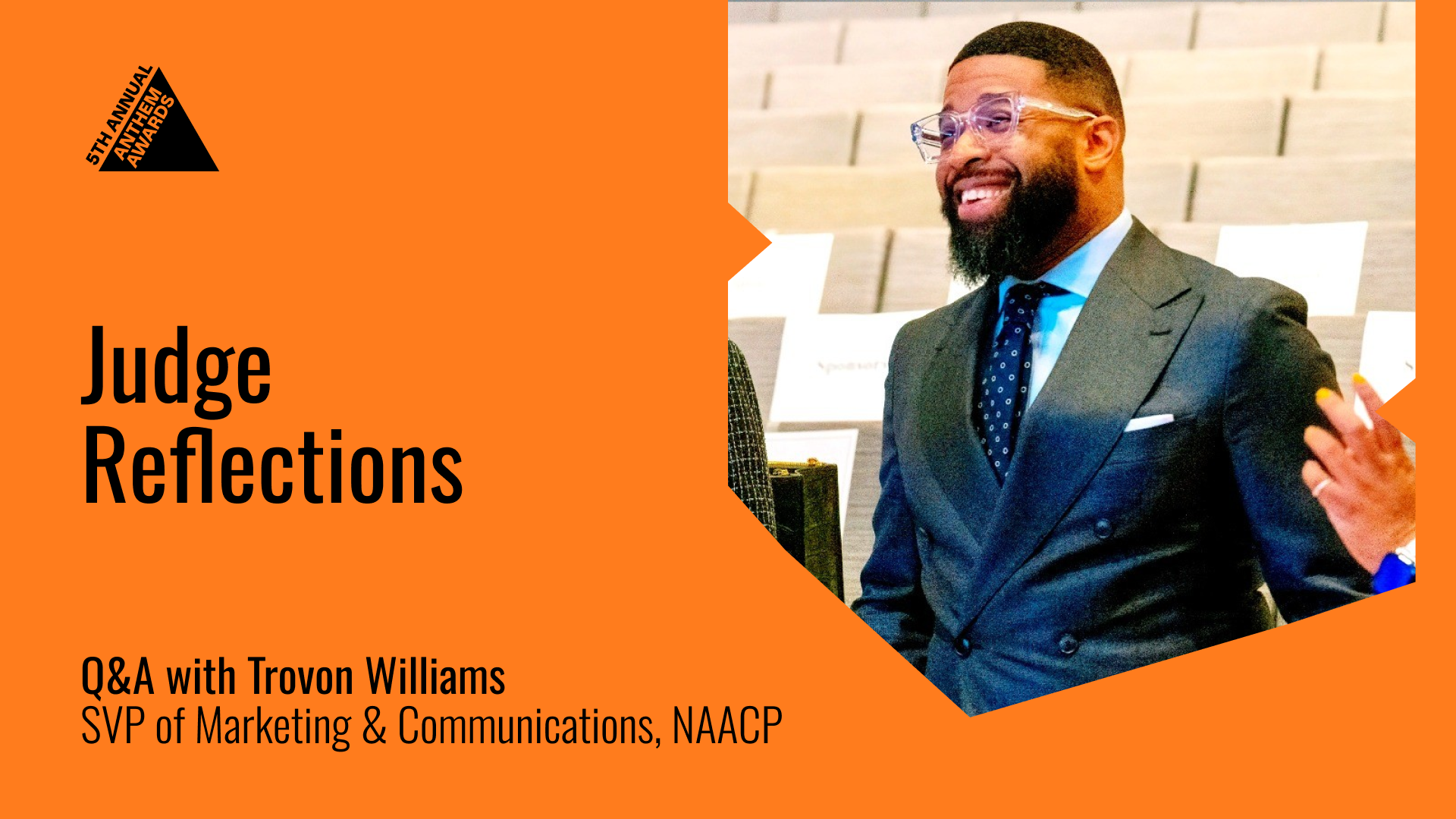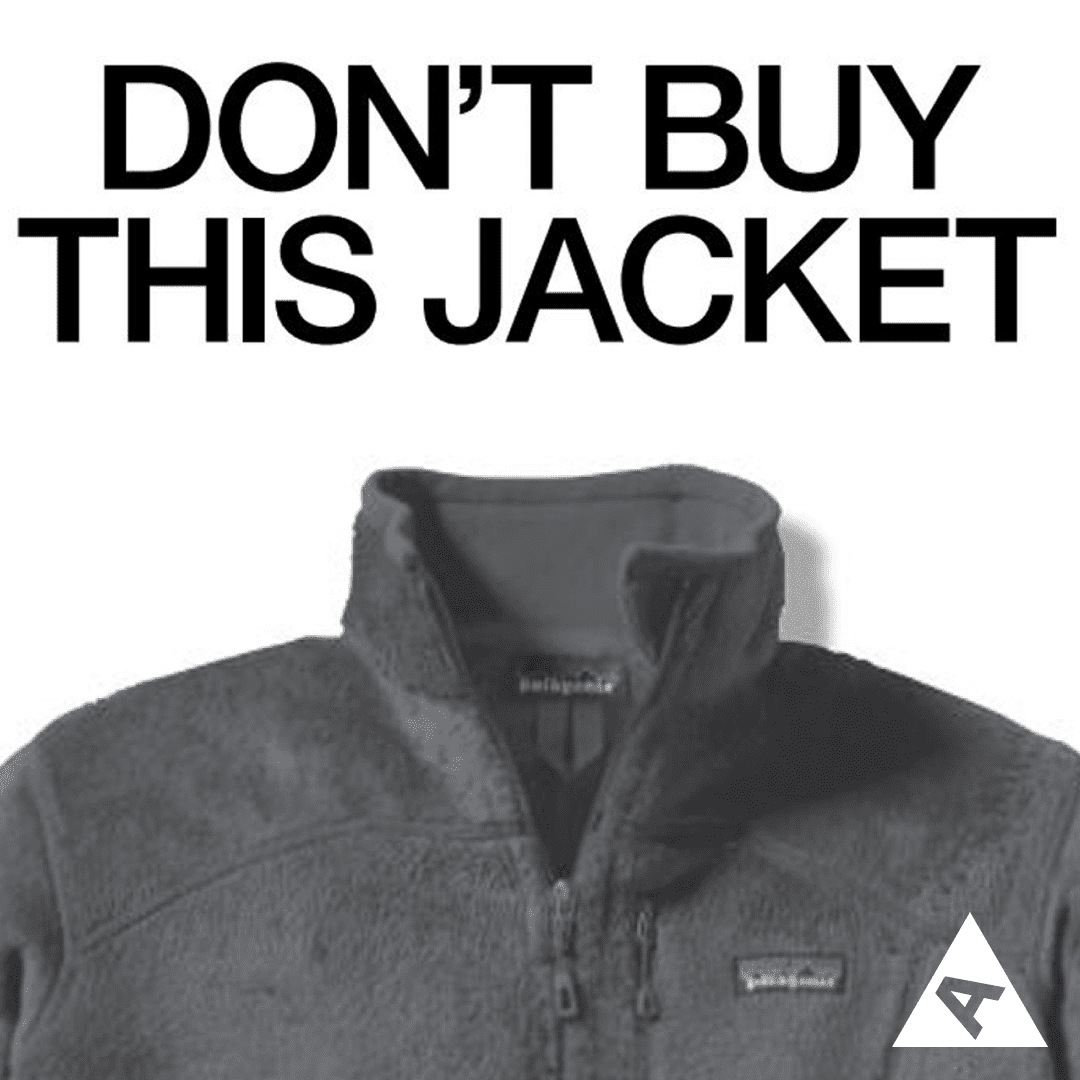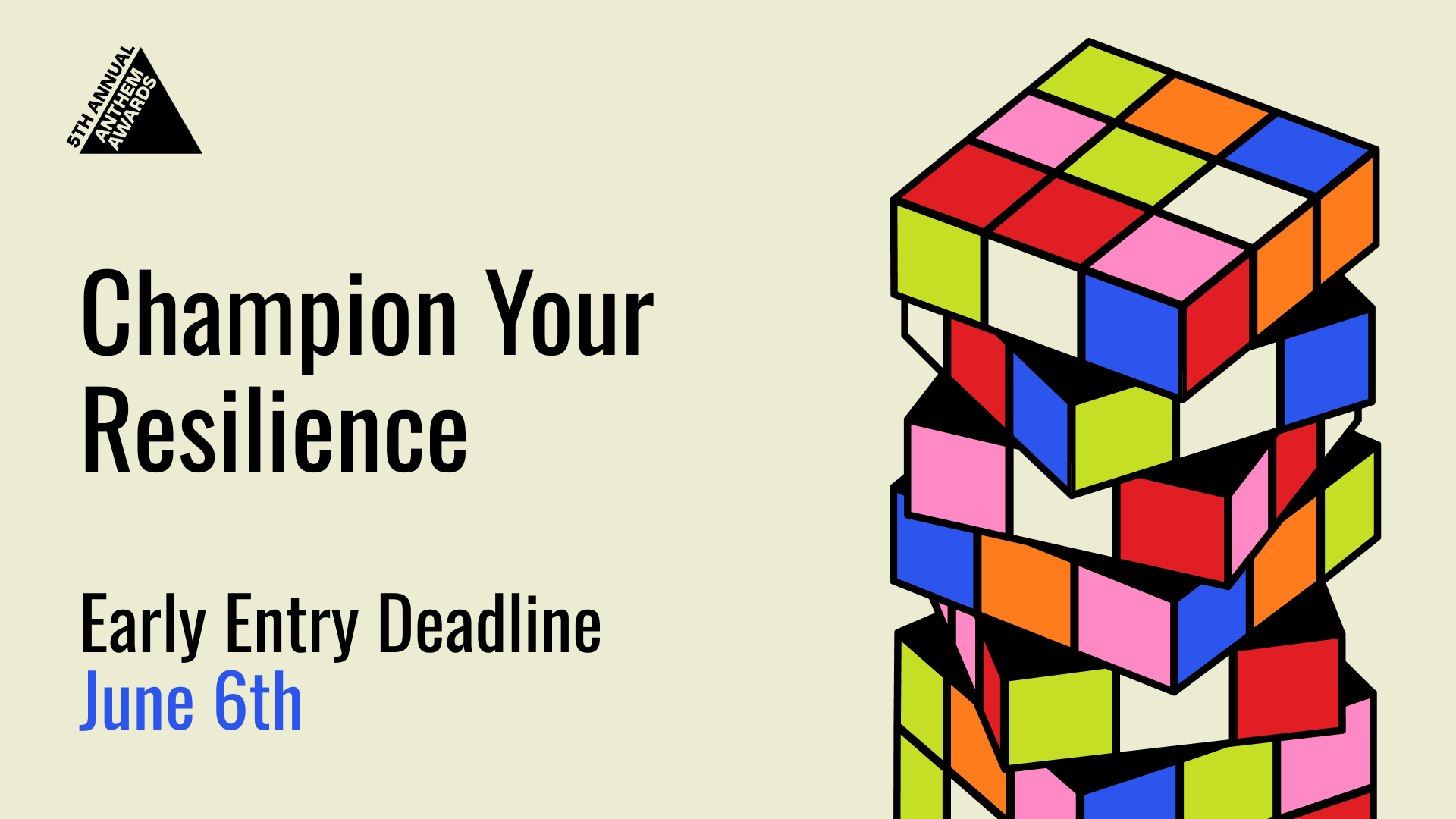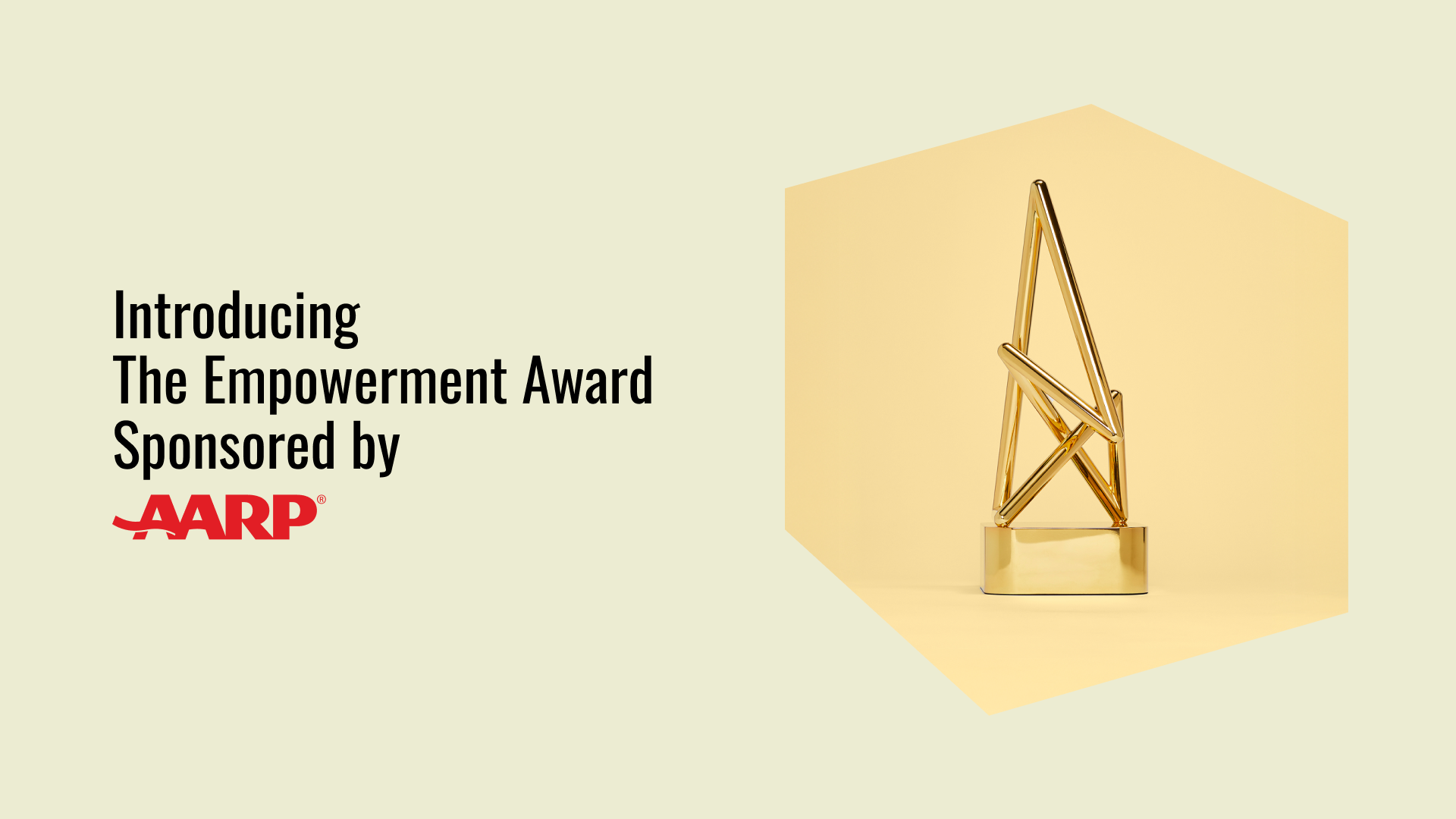More Authenticity, Less Performativity: Trovon Williams on What Drives Action in Impact
Reflections on how the impact industry has evolved over the past five years, from NAACP’s SVP of Marketing and Communications

Few have had a front-row seat to the evolution of the social impact industry in the past five years, as much as for Anthem Awards judges. Evaluating some of the most impactful initiatives has given them a close-up of the tactics that work (and don’t). We’re pulling this insight into what makes impact work stick in our new Judge Reflections series!
In our first edition, we’re speaking to Trovon Williams, SVP of Marketing and Communications at the NAACP and one of the longest-standing members of the Anthem Judging Academy. In this Q&A, Williams unpacks how culturally-rooted narratives are driving real action and the steps we can take to protect the future of social change.
“People don’t just move because they’re informed—they move because they feel seen, empowered, and part of something bigger.”
How has the impact space evolved since you first joined Anthem’s Judging Academy in 2021?
I’ve watched the impact space change from performative moments to movements with a purpose since I joined Anthem’s Judging Academy in 2021. Impact is no longer seen as an add-on by brands; rather, it is becoming essential to their operations, narratives, and trust-building. The standard for authenticity has never been higher, and audiences now demand action in addition to awareness. Seeing and assessing how organizations are integrating their missions with quantifiable, long-lasting change has been incredibly impactful.
Was there anything that surprised you in the past five years of reviewing leading campaigns and initiatives?
What’s stood out to me over the past five years is just how powerful authenticity has become in driving real connection and impact. The campaigns that leave a lasting impression aren’t always the flashiest—they’re the ones rooted in truth, lived experience, and a clear commitment to community. I’ve been inspired by how many brands and organizations are leaning into transparency and vulnerability, showing up not with all the answers, but with a willingness to listen and grow. It’s a powerful reminder that when impact work is authentic, it resonates—and it lasts.
If anyone knows what works in the impact space, it’s you. What strategy do you think is key for not only raising awareness but also driving action in today’s landscape?
From my perspective at the NAACP, the key strategy is rooted in culturally resonant storytelling paired with clear calls to action. People don’t just move because they’re informed—they move because they feel seen, empowered, and part of something bigger. The most effective campaigns meet communities where they are, honor their lived experiences, and give them tangible ways to act.
What are some of your all-time favorite projects that left you feeling inspired and hopeful?
Some of the projects that have left me most inspired are the ones where storytelling sparked real movement. The #WeAreDoneDying campaign stands out—it wasn’t just a callout of injustice; it was a rallying cry that galvanized people across the country to demand change. More recently, #KeepAdvancing has been powerful because it centers resilience and forward momentum in a time of fatigue and resistance. I’m also proud of our work on Hey Black America, a platform we created to speak directly to our community with truth, urgency, and love. These projects reminded me of the deep well of power in our stories—and how, when told authentically, they can move policy, perception, and people.
What do you think is next for the impact industry? What will it take to inspire another purposeful renaissance across industries?
What’s next for the impact industry is a deeper demand for accountability—and a shift from storytelling about impact to storytelling with the communities at the center of it. We’re moving into an era where performative allyship won’t cut it. To spark another purposeful renaissance, industries will need to build trust through co-creation, long-term investment, and transparency. It’s not just about big campaigns—it’s about sustained, values-driven action that proves purpose isn’t a trend, it’s a throughline.
Ready to Set the Standard?
Enter the 5th Annual Anthem Awards to amplify your mission-driven work. Whether you’re a grassroots organizer or global brand, if your work is moving the needle, it belongs on the Anthem stage. Enter by the Early Entry Deadline on Friday, June 6 for best pricing!








